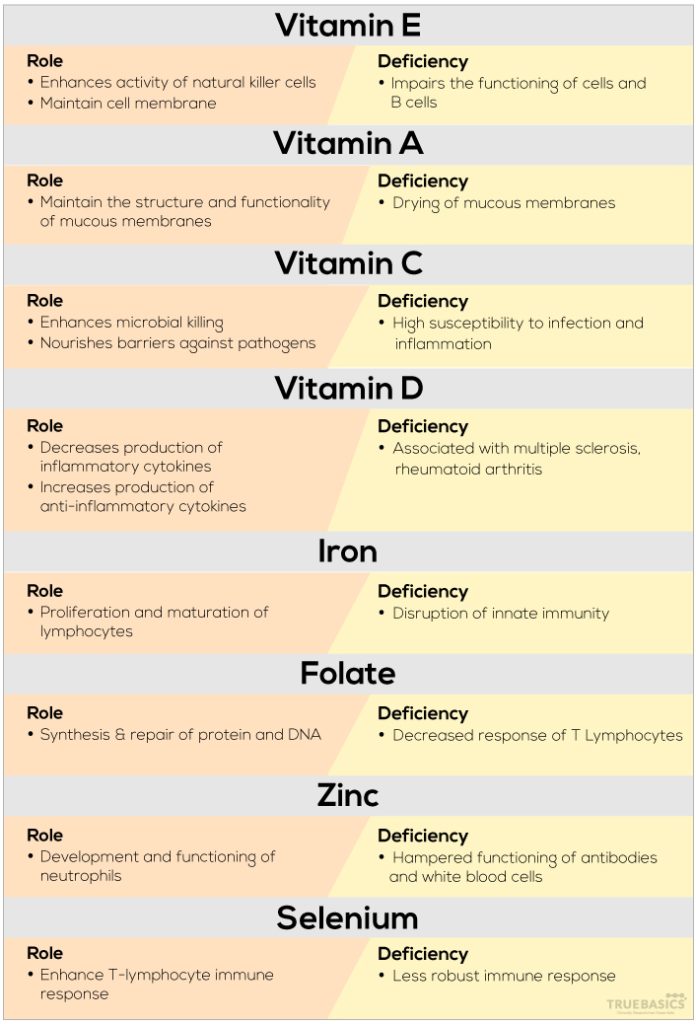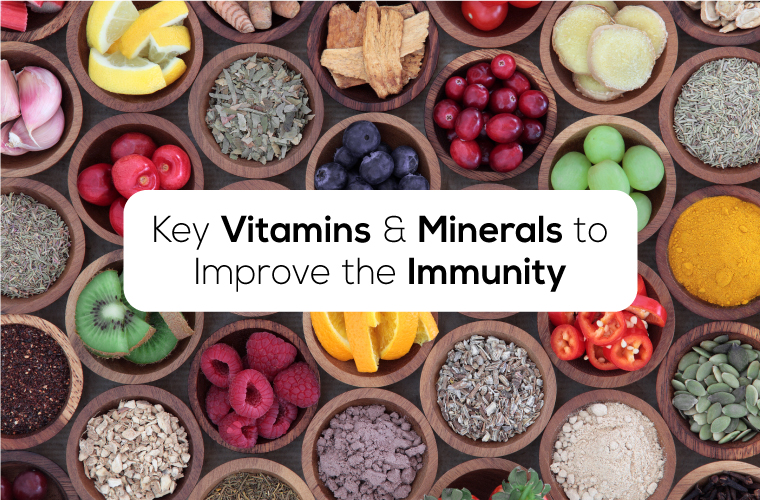‘Immunity’ is something most of us often talk about when someone is ill. But what is it exactly? It can be defined as the ability of an organism to resist incoming infections and toxins through the action of specific cells and antibodies.
Several characteristics make the immune system special and set it apart from any other ‘system’ in the human body. There are no specific organs or vessels that are dedicated purely for the purpose of protecting our body and ensuring survival. The immune system transcends these boundaries and works through different tissue groups, organ systems, and specialized yet widely distributed defence cells. Together, all these elements work in harmony to keep our body alive and healthy through the constant assault of harmful microorganisms, allergens, and rogue white blood cells.
The immune response also maintains the body’s state of equilibrium, or homeostasis, through a complex network of biochemical reactions.
The immunity is held together by the following components:
- Skin and epithelial layers of the GI and respiratory tracts
- Biochemical barriers like mucous membranes and gastric juices
- Variety of different cells like antibodies, T cells, and B cells
The immune system primarily works to keep us alive, and throughout our existence, it develops, matures and eventually, declines. Out of all the factors affecting our immunity like age, hormones, nutrition, stress, climate, pollution; nutrition is of key importance to maintaining our immunity.
The body needs a steady supply of energy and nutrients, both macro and micro, to support its functioning and maintenance. A diet deficient in key nutrients not only compromises immune function by increasing the risk of infection, but it also sparks inflammation in the body.
Key Nutrients for a Healthy Immune System
Wondering what are the key nutrients that support out immunity system? Let’s find out.
1. Antioxidants
Antioxidants are the first nutrients to pop in the context of immunity and preservation of health and wellbeing. Here’s why antioxidants are important to improve immunity:
Reduction and Oxidation, collectively called Redox reactions, are two simultaneous chemical reactions that involve the exchange of electrons from one substance to another. They’re responsible for the storage and release of the cellular energy, or Adenosine Triphosphate (ATP). Photosynthesis in plants and the action of mitochondria in animal cells are prime examples.
Redox reactions are necessary for maintaining the homeostasis as depicted by key parameters like body temperature, blood sugar levels and concentration of ions in the body. Free radicals are created when the body kills microorganisms to maintain homeostasis, and their accumulation causes damage to the cells. Strong antioxidants like Vitamin A, Vitamin C, and Vitamin E, combats free radical accumulation and reactions in the body to reduce oxidative stress.
Vitamin E
Cellular immunity and Vitamin E are intricately related. This fat-soluble nutrient maintains the cell membranes through free radical reactions and enhances the activity of Natural Killer (NK) cells, a type of lymphocyte. Vitamin E deficiency, although rare, impairs the functioning of T cells and B cells and consequently that of the adaptive immune system. Common cooking oils like canola oil, wheat germ oil, sunflower oil, and olive oil and nuts like almonds and peanuts contain adequate Vitamin E to fulfill our daily requirements.
Vitamin A
Mucous membranes are responsible for trapping small particles and foreign substances in the respiratory, gastrointestinal and genitourinary tracts. They prevent pathogens from entering our bodies, thereby forming an indispensable component of our immune system. Vitamin A helps maintain the structure and functionality of mucous membranes, and its deficiency dries them out resulting in impaired immunity against microbes and parasites [1]. Dietary sources of Vitamin A include chicken liver, ghee, butter, carrot, sweet potato, and green vegetables.
Vitamin C
This citrus vitamin has many feathers in its hat. It is a cofactor for integral biosynthetic enzymatic reactions, nourishes barriers against pathogens and enhances microbial killing. Moreover, it regenerates other important antioxidants to their active state and promotes collagen synthesis that reinforces epithelial layers [2]. Deficiency of Vitamin C breeds an impaired immunity, resulting in high susceptibility to infections and inflammation [3]. Citrus fruits, bell peppers, broccoli, papaya, tomatoes, etc are great sources of Vitamin C.
2. Vitamin D
Vitamin D has been found to modulate immune responses by strengthening the body’s innate immunity system. It decreases the production of inflammatory cytokines while increasing the production of their anti-inflammatory counterparts. The best example lies in the case of respiratory health, where Vitamin D reduces inflammation and enhances defences against pathogens [4]. A deficiency of Vitamin D is linked to autoimmune conditions like multiple sclerosis, rheumatoid arthritis, type-II diabetes, lupus and inflammatory bowel syndrome (IBS). Sunlight is the best source of Vitamin D. Dietary sources of Vitamin D include fatty fishes such as salmon, mackerel, and tuna, eggs and mushroom.
3. Iron
An important cofactor in redox reactions, iron is necessary for the proliferation and maturation of chief immune cells, the lymphocytes. A lack of iron is related to inadequate immune response, although an excess of it could also facilitate infections [5]. Dietary sources of iron include legumes, spinach, dry fruits, and spirulina.
4. Selenium
Although a trace element, selenium is a powerful antioxidant and plays an important role in the health of the immune system. Intake of Selenium enhances T-lymphocyte immune response. A deficiency of selenium can harm immune cell function and slow the immune response, leading to an increase in the probability of infections [6]. Dietary selenium can be obtained from grains, veggies, seafood, meat, dairy, and nuts [7].
5. Folate (Vitamin B9)
The foremost role of folate in the body is in the synthesis and repair of protein and DNA, and therefore a deficiency of this nutrient could hamper immunity. Research shows that Vitamin B9 is essential for the sustenance of T cells [8], and their reaction to certain protein bits are decreased in folate-deficient organisms, resulting in slow and impaired functioning. Studies have also shown a reduced resistance to infection in people suffering from a lack of folate in their diets [9]. Dietary folate can be obtained from liver, peanuts, lentils, chickpeas, green leafy vegetables, and nuts.
6. Zinc
Zinc has many rudimentary roles in DNA replication, cell division, and cell activation. This mineral is necessary for the normal development and functioning of specialized cells called neutrophils that heal damaged tissues and tackle infection [10]. Scientists have long established that people deficient in zinc have an increased susceptibility to pathogens and impacts one’s acquired immunity by hindering the functioning of antibodies, white blood cells, and other immunological cells. Zinc can be obtained from dietary sources such as pumpkin seeds, cashews, flaxseed, almonds, whole wheat flour, and eggs.
In a nutshell,

In conclusion…
The immune system is an incredibly complex system and works 24/7 to protect us from invading pathogens and infections. Several factors including ageing, stress, nutrition deficiency can affect our immune system. A balanced diet and the right nutrition hold the potential to support the immunity system. In order to strengthen the body’s immunity, one must include Vitamin C, Vitamin A, Vitamin D, Vitamin E, Iron, Selenium, Folate, and Zinc in their diets to avoid frequent illnesses and infections.
#ShareIfYouCare #RepublicofDeficiency
Sources:
[1] http://www.britannica.com/science/immune-system
[2] https://www.ncbi.nlm.nih.gov/pmc/articles/PMC6212925/
[3] https://www.ncbi.nlm.nih.gov/pubmed/29099763
[4] https://www.ncbi.nlm.nih.gov/pmc/articles/PMC3166406/
[5] https://www.ncbi.nlm.nih.gov/pubmed/10971835
[6] https://www.ncbi.nlm.nih.gov/pmc/articles/PMC3723386/
[7] https://www.ncbi.nlm.nih.gov/pmc/articles/PMC6163284/
[8] https://journals.plos.org/plosone/article?id=10.1371/journal.pone.0032094
[9] https://www.ncbi.nlm.nih.gov/pubmed/1887065
[10] https://www.ncbi.nlm.nih.gov/pubmed/9701160













